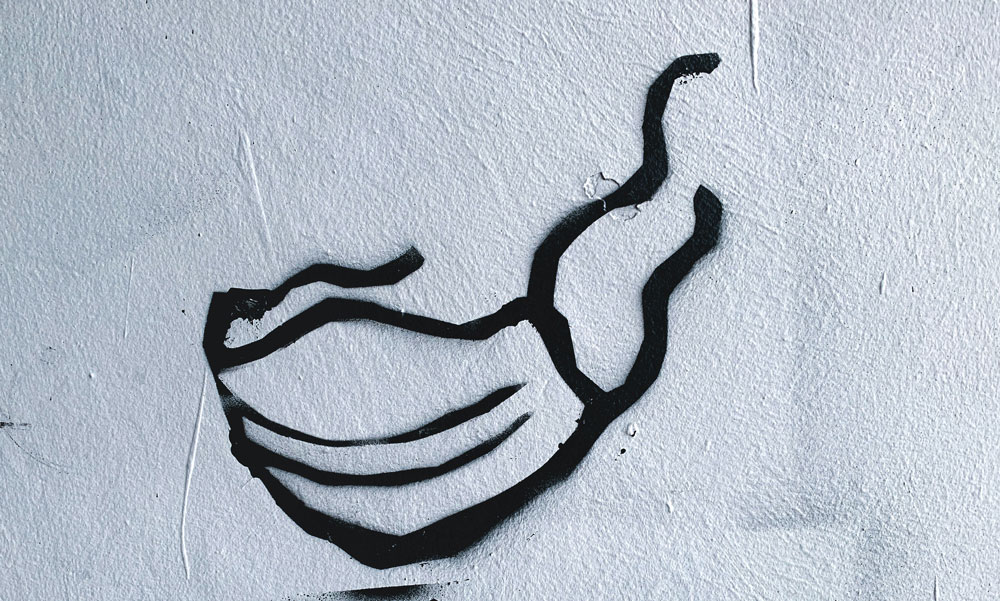
By Lawrence O. Gostin
After 2 years of a seemingly relentless pandemic that has upended work, education, and social interactions, the questions many are asking are when will we get back to normal and what will life be like after the cOVID-19 pandemic? In truth, science cannot fully predict what SARS-CoV-2 variants will arise and the trajectory of the pandemic. Yet, history and informed scientific observations provide a guide to how—and when—society will return to prepandemic patterns of behavior. There will not be a single moment when social life suddenly goes back to normal. Instead, gradually, over time, most people will view cOVID-19 as a background risk and abandon the trappings of pandemic caution.
The Great Influenza Pandemic of 1918 offers a historical guide to transitioning from a pandemic to an endemic infection. That pandemic began to subside after an estimated 500 million people—one-third of the world’s population—became infected, conferring high population immunity. (Approximately 50 million died worldwide, including 675 000 in the US.) The virus also mutated and became less pathogenic. Influenza H1N1 eventually reached an equilibrium, spreading among pockets of susceptible individuals without taking the lives of most.
SARS-CoV-2 may be following a similar trajectory. An estimated 94% of people in the US now have at least some vaccine- or disease-induced immunity against cOVID-19. The highly contagious Omicron variant may speed transition to an endemic phase, with more than 100 million US residents becoming infected. Omicron also appears less pathogenic than previous variants. Thus far, booster doses of messenger RNA cOVID-19 vaccines are conferring robust protection, with cOVID-19 hospitalizations 16 times higher for unvaccinated adults than for fully vaccinated persons in December 2021.
cOVID-19 will not be eliminated, and certainly not eradicated, in the foreseeable future. Intermittent surges will occur, driven by viral evolution and colder weather keeping individuals indoors. Ongoing vaccination will be needed because of waning immunity and viral mutations. cOVID-19 will also require surveillance similar to the Global Influenza Surveillance and Response System, a global platform for monitoring influenza epidemiology and disease that is used in formulating seasonal influenza vaccines.
A Cautionary Tale
There are major caveats to when the pandemic will wane, including the unknown duration of vaccine- or disease-induced immunity. Billions of people worldwide still are unvaccinated, facilitating rapid viral mutations. In 1920, a variant of influenza emerged that caused an outbreak so severe it could have been considered another pandemic wave. And a pandemic H1N1 strain emerged in 2009.
Although the Omicron variant appears to cause milder disease, future mutations may not be less severe. Viral evolution is not linear as many assume, with various strains likely to emerge. Vaccinating the world’s population will remain a major priority, along with effective cOVID-19 therapeutics.
Scientific uncertainty also exists about the causes, and frequency, of long cOVID, or post-cOVID conditions, in which chronic symptoms persist beyond the infection’s initial phase. Reinfections are now common, raising concerns about chronic disease. Research into risk factors and clinical management of long cOVID will be important.
Living With cOVID-19
Endemic is an epidemiologic term, whereby overall infection rates stabilize. The US Centers for Disease Control and Prevention (CDC) defines endemic as “the constant presence or usual prevalence of a disease or infectious agent in a population within a geographic area.” Endemicity is also determined by when countries decide to move from emergency response toward longer-term control programs. Several high-income countries are already developing postpandemic plans. During endemic phases, most people return to prepandemic patterns of behavior, depending on personal risk tolerance.
cOVID-19 management will likely resemble influenza-like illness surveillance. In the US influenza surveillance system—which itself requires modernization as well as improvement of data systems—the CDC partners with states, laboratories, and hospitals to detect influenza outbreaks, viral strains, and disease severity. cOVID-19 management will require rapid identification of case clusters and variants. Outbreaks may trigger testing, contact tracing, and isolation. Isolation duration might be reduced based on case and hospitalization rates as well as social and economic needs. South Africa, for example, recently announced it will not require isolation of asymptomatic SARS-CoV-2–positive cases.
Periodic cOVID-19 vaccinations, modified as new variants circulate, will remain a major control strategy. Vaccine mandates may resemble those for influenza, covering high-risk settings such as hospitals and nursing facilities. Proof of vaccination for dining, entertainment, shopping, and travel may eventually be retracted. It is unclear whether, or when, the CDC will add cOVID-19 to its recommended list of school vaccinations. Currently, only California and Louisiana require cOVID-19 vaccinations for school entry, although some localities mandate them for activities such as sports.
Mandates regarding the wearing of masks and social distancing may soon be relaxed, depending again on levels of risk. cOVID-19 mitigation strategies could be rapidly reimplemented to counter outbreaks, and then retracted when the threat subsides—requiring effective communication. Absent mandates, pandemic behaviors such as wearing masks may continue for vulnerable or risk-adverse individuals, especially in crowded places such as movie theaters and concert venues.
The public may no longer accept the most severe cOVID-19 strategies such as school closures, lockdowns, and travel bans. Denmark recently removed all cOVID-19 restrictions and Colorado’s governor declared “the emergency is over.” Highly restrictive measures pose significant social, educational, and economic costs.
A Return to Socialization
cOVID-19 risk mitigation resulted in profound social isolation and loneliness, evidenced by increased anxiety, depression, substance abuse, and suicidal thoughts. The public yearns for simple joys, such as embracing family members or friends, dining out, or seeing a smile unhidden by a protective mask. Humans are intrinsically social beings. It was not long after the 1918 pandemic when the US resumed intense socialization, with the Roaring 20s bringing people together in crowded dance halls, movie palaces, and speakeasies.
Some pandemic behaviors may continue, at least in part, if there is social utility. Hybrid working (remote and in-person) could outlast the pandemic, offering many employees a better balance between family and career and more choice in where to live. Air travel may also remain stagnant for the immediate future. By December 2021, international travel was 72% below 2019 levels, and it may not recover until 2024.
Eroding Public Health
It seems intuitive that a pandemic would increase reliance in, and trust of, public health agencies. That intuition appears mistaken. Trust in public health agencies declined significantly during the pandemic in the context of intense politicization over mitigation measures and confusing CDC guidance. States have enacted more than 100 new laws limiting health emergency powers, banning mask or vaccination mandates, and limiting governors’ emergency powers. The judiciary also curtailed public health powers, including the US Supreme Court’s decision to block the Occupational Safety and Health Administration’s vaccine-or-test mandate. The Supreme Court also overturned social distancing orders that placed limits on religious services.
The cOVID-19 pandemic has challenged society to reexamine the balance between personal freedom and public health in a postpandemic era. It may be too soon to shift to an endemic phase while Omicron-related hospitalizations remain high and effective therapeutics are scarce. The US has far higher death rates and lower vaccination rates than peer nations. But a gradual transition to normal will likely occur in the coming months, bringing back social activities that individuals have dearly missed. The ability of public health agencies to help society return safely to a new normal will remain critically important.
![]()
 Lawrence O. Gostin is University Professor, Georgetown University’s highest academic rank conferred by the University President. He directs the O’Neill Institute for National and Global Health Law and is the Founding O’Neill Chair in Global Health Law. He served as Associate Dean for Research at Georgetown Law from 2004 to 2008. He is Professor of Medicine at Georgetown University and Professor of Public Health at the Johns Hopkins University. He is also the Director of the World Health Organization Collaborating Center on National and Global Health Law. This article originally appeared at the JAMA Health Forum.
Lawrence O. Gostin is University Professor, Georgetown University’s highest academic rank conferred by the University President. He directs the O’Neill Institute for National and Global Health Law and is the Founding O’Neill Chair in Global Health Law. He served as Associate Dean for Research at Georgetown Law from 2004 to 2008. He is Professor of Medicine at Georgetown University and Professor of Public Health at the Johns Hopkins University. He is also the Director of the World Health Organization Collaborating Center on National and Global Health Law. This article originally appeared at the JAMA Health Forum.





























Leave a Reply